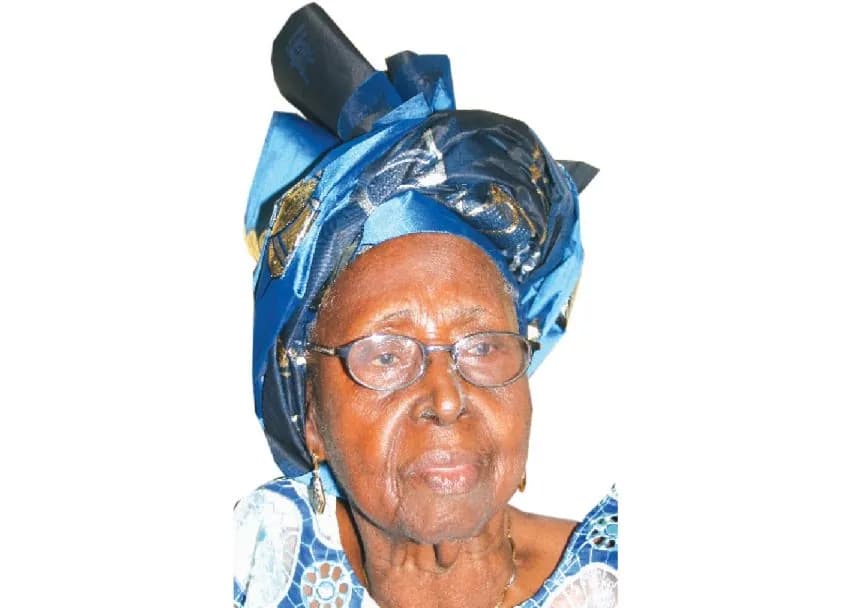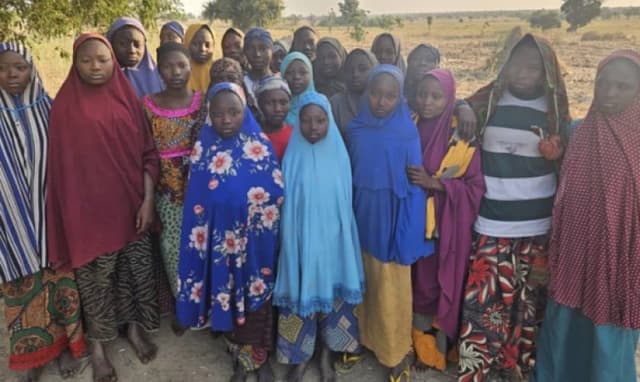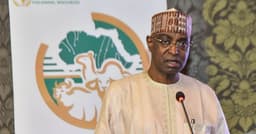
Want gender equality, women’s participation in politics to be addressed • HID Awolowo, a formidable leader in her own right – Senator Danjuma • Dialogue designed for next generation of women leaders —Tokunbo Awolowo Dosunmu • Ogun Deputy Governor calls for stronger institutional support • Dabiri-Erewa predicts difficult road to 2027 general elections
Women of thought in Nigeria have called for the domestication of the National Gender Policy (NGP) to strengthen women’s voice and representation in governance.
This was one of the submissions made by scholars, politicians, youth advocates, among others, at the HID Awolowo Foundation Dialogue with the theme: ‘Breaking Barriers or Standing Still? Nigeria Women in Politics 30 Years after Beijing’ in commemoration of the 110th posthumous birthday of Yeye Oodua, HID Awolowo, held physically and virtually at the Efunyela Hall, home of the Awolowos, Ikenne Remo, on Tuesday.
The gathering observed a minute’s silence in honour of Mr Olusegun Awolowo, one of the grandsons of the sage, Chief Obafemi Awolowo.
Kicking off the event with a tribute to Barrister Segun Awolowo, who died recently, former Commissioner for Investment, Trade and Industry, Ekiti State, Aare Muyiwa Olumilua, described the late Nigerian Export Promotion Council (NEPC) boss as an iconic figure, a big brother, and a role model.
Going down the memory lane, Aare Olumilua explained how the late Barrister Awolowo, as NEPC boss, was supportive of the state’s efforts at growing its GDP.
He said, “During my tenure as Commissioner for Investment, Trade and Industry under the administration of Dr. Kayode Fayemi, we were faced with the urgent task of strengthening the state’s GDP by accelerating economic activity.
“I felt that a strong partnership with the Federal Government would be crucial, so I proceeded to the Abuja office of the NEPC.
“His welcome was warm, effusive and disarmingly genuine. He asked after my family, and spoke of my late father—who had passed shortly before our meeting—with such glowing praise that it caught me off guard.
“We quickly turned to the task at hand. He summoned his senior officials, telling them that his “brother” was in the building and must be given every assistance.”
Aare Olumilua also used the opportunity to commend the convener of the programme, Ambassador Dr. Tokunbo Awolowo Dosunmu, for bringing together such an assemblage of erudite personalities, describing it as no ‘small feat’ bringing such eminent individuals together under the prevailing circumstances.
Ambassador Awolowo Dosumu, in her welcome address, said the Dialogue was convened to encourage women’s political participation, bridge generational gaps, and align national action with global commitments.
She noted that thirty years after the Beijing Declaration, Nigerian women are still confronted with enduring barriers in political participation and leadership.
The chairman of the African Newspapers of Nigeria (publishers of the Tribune titles) urged Nigerian women, especially the next generation of aspiring women leaders, to be courageous, persistent, and determined.
She said, “Never give up on your vision, and never allow anyone to convince you that you are unworthy of leadership.
“Let us together ensure that thirty years after Beijing does not become a story of standing still, but a renewed call to build stronger bridges for ourselves, for our nation, and for generations yet unborn.”Awolowo Dosumu described the late matriarch of the Awolowo dynasty as a woman of courage who stood by her husband throughout his period of political tribulations.
The chairman of the occasion, Senator Daisy Danjuma, in her opening remark, explained that cultural and structural constraints are some of the factors limiting Nigerian women in leadership process.
Danjuma pointed out that Nigerian women have never lacked vision or competence, urging women to move beyond rhetoric by expanding their access and building relationships.
She noted that the Dialogue was not put together just for the commemoration of Mama Awolowo’s posthumous birthday but as a call for action for women emancipation and gender equality.
She noted that women had the highest number in the National Assembly in 2007, but the situation had not been the same since, urging women to be strong and determined in their pursuit.
“If all political parties stand that for every three senators, one must be a woman, definitely we will get somewhere.
“Contesting election as a woman is not that easy. You must be strong. Seeking political office is not for the weak. A woman that wants to contest in an election must be twice stronger than the man. Every woman you see holding political position worked for it,” she added.
Senator Danjuma, therefore, advocated for women inclusion in the nation’s political process for advancement, progress and development.
She assured that the HID Awolowo Foundation would provide platform for mentorship for women interested in politics.
The Keynote Speaker, Professor Olabisi Aina, harped on the need to ensure top-level commitment, effective budgeting and institutional enforcement to fill Nigeria’s compliance gaps.
Aina, who is the Executive Director, Centre for Gender Women and Children in Sustainable Development, advocated full political emancipation of the womenfolk, while highlighting that HID Awolowo’s influence cut across political parties in Nigeria during her lifetime.
She equally noted that 2007 was the time that Nigeria had the peak representation of women in governance with 7.8 percent.
“Every state must domesticate the National Gender Policy. Nigeria has a replica of policies,but I think first that people at the National Assembly can take on what we have on National Gender Policy
“We have 36 states; only six states have domesticated the NGP; so we revised it in 2021. The policy can only work with a structured system. The government at the centre, state and local government levels must take a portion of the policy and make it a law.
“If you do not domesticate, you are not going to get federal support. The policy after domestication must be implemented,” Professor Aina added.
Professor Aina, a distinguished scholar and gender expert, called for a complete restructuring of power, truth and justice to secure the full political emancipation of Nigerian women.
Aina stressed that the conversation was not about revisiting history but about shaping the architecture of a more just Nigerian future.
She paid glowing tribute to iconic women whose legacies, she said, continue to illuminate the struggle for equality.
“We cannot start this dialogue without honoring our foremothers,” she declared.
“Before we had the data, they led the torch we carry today.”
She highlighted HID Awolowo, whom she described as “the pillar of independence and the nation’s stabilizing mother figure,” as well as Funmilayo Ransome-Kuti, celebrated as the “Lioness of Lisabi.”
Others included Margaret Ekpo, a “nation-building powerhouse,” and Hajia Sawaba Sambo, who “dared the northern oligarchy” and endured multiple imprisonments for her activism.
Aina also recognized Kolade Awe for preserving women’s history and integrating feminism into academic research, alongside the “market leaders and unnamed heroines whose courage she said must guide the nation’s progress.”
She revealed that the country ranks 184th out of 193 countries globally in women’s parliamentary representation, placing it at the bottom of Africa.
“Is it that bad for us?” She asked rhetorically. “Why does exclusion continue to persist? What role did we give to the HID Awolowo Foundation?”
Despite rich cultural histories in which women played active roles in governance, she argued, their exclusion in modern political structures has become entrenched despite multiple gender-focused policies. The problem, she noted, is not policy creation but implementation.
She criticized the gap between policy formulation and actual outcomes.
“On policy formulation and commitment, we are doing well. But enforcement and budgeting are shrinking. When you have policy and there is no budget, how do you go about it?”
She noted that the Ministry of Women Affairs consistently receives one of the lowest budget allocations, undermining its ability to coordinate cross-sector gender integration as mandated.
She stressed that the Ministry of Women Affairs should not function in isolation but should collaborate with every sector where women play critical roles from agriculture and environment to health.
She emphasized that policy decisions affecting women cannot be left solely to men, not out of conflict but out of practicality.
“We are not fighting men, but if you have men deciding issues relating to the health of women, how would they understand the peculiar issues? Men and women are different and that difference must reflect in our policies and programmes,” she said.
Professor Aina called for courage, perseverance, and renewed national commitment to finishing the “unfinished project” of women’s full political emancipation.
The United Nations Women representative, Mrs Beatrice Eyong, who addressed the audience virtually, noted that women’s challenges began from home with issues on early marriage, poverty and 80 percent of school dropouts being girls.
Eyong said there was the need for the promotion of women’s leadership across political parties to achieve the 1995 Beijing declaration in Nigeria.
The Ogun State deputy governor, Engr Noimot Salako Oyedele, in her submission, said Nigerian women are still navigating old hurdles in new forms of cultural expectations.
She noted that Yeye Oodua showed good leadership in her lifetime that must be emulated.
Salako Oyedele said, “Nigerian women in politics, thirty years after Beijing, is both a mirror and a call to action. We need stronger institutional support, more inclusive political party processes, mentorship, culture that recognises women not as exceptional but as essential partners in government.
“If we are to move from standing still to truly breaking barriers, then we must work together across generations, across sectors and across political affiliations to build pathways for women to lead with confidence and without apology.
“For instance, it’s very well heard from the Distinguished Senator, the challenges that they have had with passing gender bills in the national assembly. I think we have to start to look at our political parties, which is the basis for which we all contest where political parties can actually come up with their own policies which do not need legislation, but just this conviction from the leaders in how to support our women.
“In the 2023 elections, we had to have delegates right across the country and the directive in the APC was that for every five delegates, at least two had to be women, so we had a minimum of 40 percent of delegates being women. These are the kind of things that the parties can encourage without actually going to the national assembly.”
The Osun State governor, Senator Ademola Adeleke, represented by the Commissioner for Government House and Protocol, Hon Soji Ajeigbe, said the nation’s women have the capacity that can change the continent.
“Africa has produced quite a number of women in executive positions. We need more women on board to assume political leadership roles. We need more women in the national and state assemblies,” he added.
Minister of Arts, Culture and Creative Economy, Hannatu Musawa, who was one of the speakers at the event, stressed the need for Nigerian women to embrace unity of purpose to have a better representation and to succeed politically.
Musawa said Nigerian women are not powerless, but stronger whenever they stand firm and together.
She said, “We are powerful, yes but we are not yet organising our power in the way that truly transforms politics. Think of HID Awolowo, whose political organising and grassroots mobilisation kept a movement alive through some of the toughest moments in our national history.
“Think of Funmilayo Ransome-Kuti, who mobilised thousands of Abeokuta women to challenge colonial injustice, a movement so powerful it shook an entire system.
“Our movements are passionate, but often divided. Our voices are loud, but not always coordinated.And when we are fragmented, the system finds it easier to ignore us.
“If we want better representation, we must rethink our strategy. Work together deliberately and consistently across party lines, regions, religions, and ideologies.”
The minister explained that 30 years after 1995 Beijing Declaration and Affirmative Action, there was the need to recommit to the true essence of power in numbers, not symbolic unity, not unity for photos but strategic, active and sustained unity
“When Nigerian women gather, movements rise. When we rise, barriers fall and when barriers fall, the nation moves forward. We are capable. We are ready and together, truly together, we are unstoppable,” she said.
Women must be bold- Charntal
In her own contribution, Vice President, Senate, Cote D’Ivoire, Dr. Charntal Fanny, tasked women with boldness and the need to take their place in the decision-making table of the country.
Charntal noted that transformative democracy is a feminine one.
“In 1995 in Beijing, the world gathered to empower women. 30 years later, what can we say? Yes, progress has been made. The representation is not affluence.
“To transform this reality, we must be bold. There is no African curse. There are only political choices.
“Now is the time to claim institutional power. We do not honour HID by words alone but by actions. The time has come not to count women but access. Transformative democracy is a feminine democracy,” she said.
Touching on experience within the politics in Ivory Coast, she said there were challenges caused by being Nigerian but she was able to weather the storm.
“I faced storm in Ivory Coast because they felt she is the daughter of a Nigerian. Nigerian blood is strong and pure and maybe that’s why I have been able to succeed as an Ambassador. I was a Mayor twice,” she added.
Young women must be involved in policy-making – Toyosi Akerele
Nigerian social entrepreneur, Toyosi Akerele, called for young women participation in policy making in Nigeria.
Akerele said young women have the agility and empathy for them to thrive in politics.
Akerele noted that any society that sidelines its young women is writing its own obituary.
“Your impact on my life is a living testimony of what it means not to hide your talent. A woman’s rise is not complete until you provide a ladder for others.
“When we talk about young people, we are talking about Nigeria’s hope. Youth is not just a stage of life but a mindset. I am from Isale-Eko but schooled in the North.
Young women are not asking for too much; we are saying, give us the chance to make the policies. Young women must enter the centre of decision table. We bring agility, empathy, essential for policies.
“Nigeria’s political culture has been shaped by exclusion and the average Nigerian youth is navigating multiple identities.
“Any society that sidelines its young women is writing its own obituary.” She said.
According to her, the new lens of political leadership is courage over conformity and that 21st-century democracy cannot be built without gender lens.
She noted that a generation armed with data is ready to lead not symbolically but substantially, adding that if Nigeria is to reclaim her destiny, then the future of political leadership must be female-friendly. (The Nation)



























NEWS EXPRESS is Nigeria’s leading online newspaper. Published by Africa’s international award-winning journalist, Mr. Isaac Umunna, NEWS EXPRESS is Nigeria’s first truly professional online daily newspaper. It is published from Lagos, Nigeria’s economic and media hub, and has a provision for occasional special print editions. Thanks to our vast network of sources and dedicated team of professional journalists and contributors spread across Nigeria and overseas, NEWS EXPRESS has become synonymous with newsbreaks and exclusive stories from around the world.